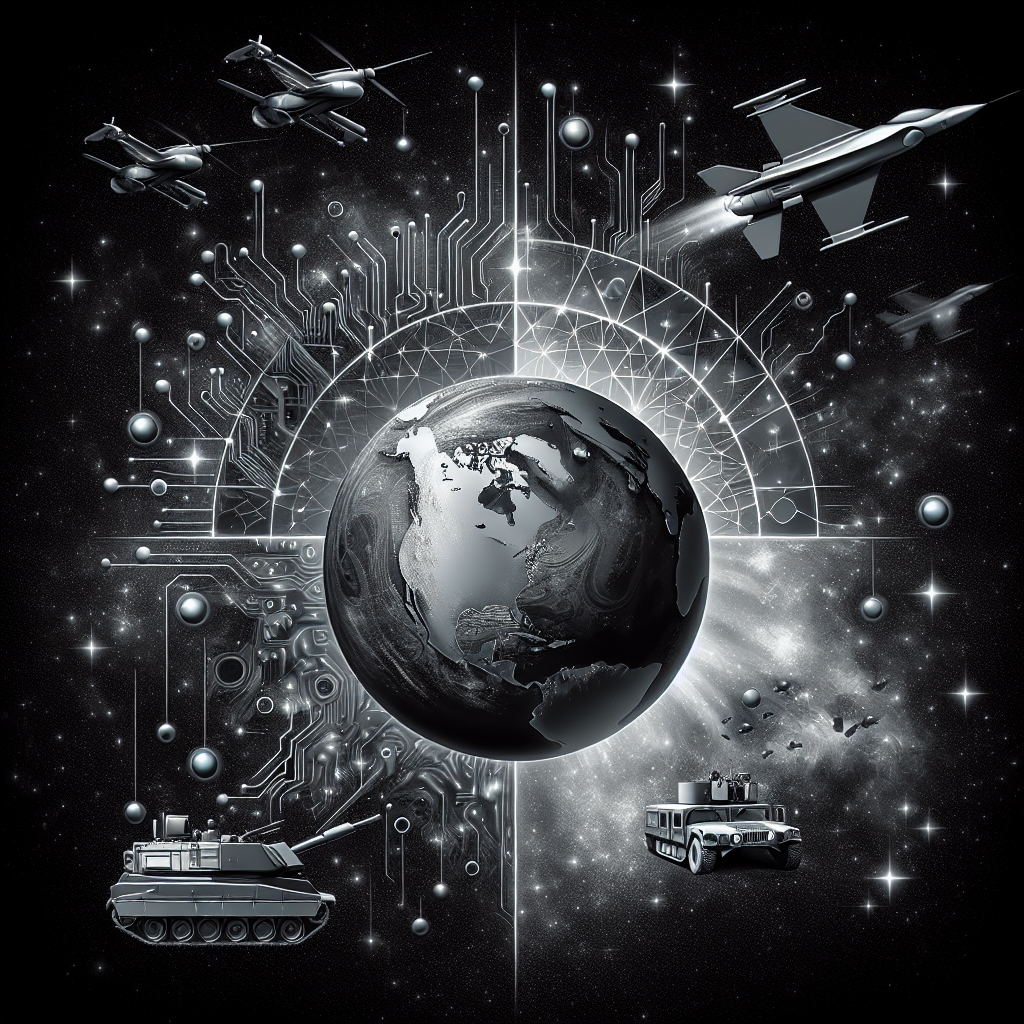Artificial Intelligence (AI) has rapidly become a key player in the field of warfare, with countries around the world investing heavily in AI technologies to enhance their military capabilities. While AI has the potential to revolutionize warfare by improving efficiency, accuracy, and decision-making, it also poses significant risks to global security. From autonomous weapons systems to cyberattacks, AI has the potential to destabilize the international security landscape in ways that were previously unimaginable.
The Rise of AI in Warfare
AI technologies have already made a significant impact on the way wars are fought. From unmanned aerial vehicles (UAVs) to autonomous tanks and drones, AI is being used to enhance military capabilities and improve battlefield performance. AI can be used for a wide range of military applications, including surveillance, reconnaissance, target acquisition, and even decision-making.
One of the key advantages of AI in warfare is its ability to quickly process vast amounts of data and make decisions in real-time. This can help military commanders make faster and more informed decisions on the battlefield, giving them a significant advantage over their adversaries. AI can also be used to enhance the accuracy of weapons systems, reducing civilian casualties and collateral damage.
However, the use of AI in warfare also raises a number of ethical and legal concerns. One of the biggest concerns is the development of autonomous weapons systems, which can select and engage targets without human intervention. This raises questions about the legality of using such systems under international humanitarian law, as well as concerns about the potential for AI to make mistakes or be used in ways that violate human rights.
Risks to Global Security
The use of AI in warfare poses a number of risks to global security. One of the biggest risks is the potential for AI to be used in ways that escalate conflicts and increase the likelihood of war. For example, the use of autonomous weapons systems could lead to a situation where decisions to use force are made without human oversight, increasing the risk of unintended consequences and miscalculations.
Another risk is the potential for AI to be used in cyberattacks and information warfare. AI can be used to launch sophisticated cyberattacks that can disrupt critical infrastructure, steal sensitive information, or spread disinformation. This can have serious consequences for national security and can potentially destabilize entire regions.
AI also has the potential to be used in ways that violate international norms and laws. For example, the use of AI in targeting systems could lead to violations of international humanitarian law, as well as the potential for war crimes to be committed. The lack of clear regulations and oversight for the use of AI in warfare raises concerns about the potential for abuse and misuse of these technologies.
FAQs
Q: What are autonomous weapons systems and how do they pose risks to global security?
A: Autonomous weapons systems are AI-powered weapons that can select and engage targets without human intervention. These systems pose risks to global security by potentially escalating conflicts, increasing the likelihood of unintended consequences and miscalculations, and violating international humanitarian law.
Q: How can AI be used in cyberattacks and information warfare?
A: AI can be used to launch sophisticated cyberattacks that can disrupt critical infrastructure, steal sensitive information, or spread disinformation. This can have serious consequences for national security and can potentially destabilize entire regions.
Q: What are the ethical concerns surrounding the use of AI in warfare?
A: Ethical concerns surrounding the use of AI in warfare include questions about the legality of autonomous weapons systems under international humanitarian law, concerns about the potential for AI to make mistakes or be used in ways that violate human rights, and the lack of clear regulations and oversight for the use of AI in warfare.
In conclusion, while AI has the potential to revolutionize warfare by enhancing military capabilities and improving battlefield performance, it also poses significant risks to global security. From autonomous weapons systems to cyberattacks, AI has the potential to destabilize the international security landscape in ways that were previously unimaginable. It is essential for policymakers, military leaders, and the international community to address these risks and develop clear regulations and oversight for the use of AI in warfare to ensure that these technologies are used in a responsible and ethical manner.

